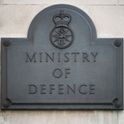The war in Ukraine has shattered many long-standing assumptions about defence and security in Europe. It has exposed the dangers of complacency and highlighted the urgent need for the UK to rethink its approach to national defence. Two years into the conflict, the message from the House of Lords International Relations and Defence Committee, which I have the pleasure of chairing, is clear: the UK's defence policy must be overhauled, and the ongoing Strategic Defence Review is a timely opportunity.
Our inquiry into the war in Ukraine has revealed some hard truths. Chief among them is that Nato’s deterrence posture failed. The signals of an invasion were there for all to see, but Vladimir Putin calculated that Nato and its members would not respond with enough force to deter his ambitions. Unfortunately, he was right. The west must conduct a frank reassessment of why its deterrence policy—which was largely based on the imposition of economic sanctions—failed and reassess the assumptions that underpin it.
The war has also revealed the limitations of British military strength. The UK’s Armed Forces lack the necessary mass, resilience and coherence to respond to prolonged, high-intensity conflict. This also limits their deterrent effect. Years of strategic neglect have left our forces stretched thin and limited in size. It is often said that the UK does not require the same number of land forces as its continental partners due to its geographical location and that, in a conflict with Russia, Germany, Poland and Finland would provide ground forces. But this is incorrect. In the event of a war with Russia, we would have to be prepared to deploy soldiers in support of Nato.
Further, Ukraine has repeatedly suffered attacks on its critical national infrastructure, from power lines to hospitals. This will likely be a feature of future conflicts. Safeguarding and repairing our critical national infrastructure requires organised manpower, but at present, we are not equipped to field the troops, equipment, and supplies needed for a sustained war effort or to protect critical national infrastructure at home.
Much of this vulnerability stems from a military structure designed around the assumption that modern conflicts will be brief, rather than protracted. The size of the British Army, for example, is inadequate for longer-term fighting. Recruitment and retention have become increasingly challenging. Our Reserves remain an underutilised asset that could help build much-needed mass, but only if the government properly funds and defines their role.
But it’s not just about boots on the ground. The whole of society has a role to play. The psychological readiness and engagement of society is a cornerstone of national security. Yet, the public remains largely unaware of the threats facing the UK, the fragility of our defence posture and how to support the defence effort. Unlike nations such as Sweden and Finland, which foster a “total defence” approach that integrates civilians into national security efforts, the UK has failed to engage citizens adequately.
The public must be drawn into the conversation about defence, including the potential for higher and better defence spending, as well as greater civic responsibility. For that to be a constructive conversation, we need to be candid about the threats we are facing and our current (limited) capabilities. We are starting to see a geopolitical shift resulting from the war in Ukraine, where countries like China, Iran and North Korea are providing economic and military support to Russia, raising the prospect of increased collaboration between countries that are in competition with or outright hostile to the UK. There needs to be a greater sense of urgency and awareness of the risks we face.
Strengthening our international partnerships is vital, too. The war in Ukraine has underscored the shifting nature of alliances during conflict. Russia is seeking to offset western sanctions and avoid international isolation by courting key countries in the Global South, such as India. In response, Britain must redouble efforts on the global stage, leveraging the tools of diplomacy and our respected role as an international development actor to offer an alternative value proposition to the one Russia (and China) are putting forward.
Ukraine’s war is a wake-up call regarding the UK’s relative decline as a military power. It exposes the gaps in our military capabilities and the disconnect with both the British public and the global community—both vital connections in times of war. The upcoming Strategic Defence Review must confront these realities. The government must spend more and spend better but, for this to be possible, it must first develop a strong case that resonates with citizens, emphasising the importance of national security in their daily lives.
The message from our report is stark. The choices Britain makes now will determine whether we can restore the credibility of our Armed Forces and remain an influential player on the global stage. Alternatively, we risk being forced to respond to crises awkwardly instead of helping to prevent them. The war in Ukraine has shifted this debate from hypothetical discussion to reality. Complacency is no longer an option.













